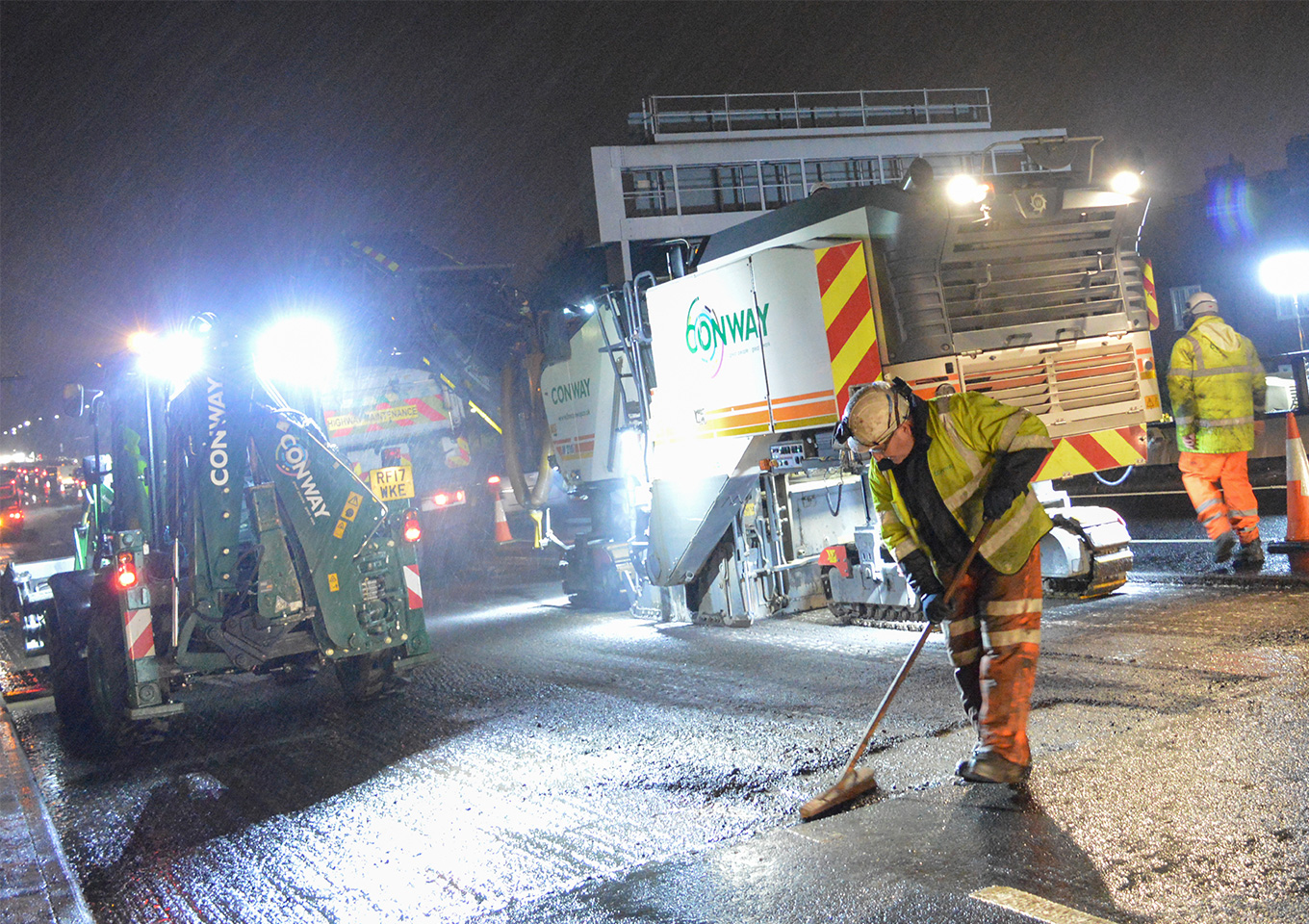FM Conway and TfL complete pioneering highways project
Leading infrastructure services company FM Conway and Transport for London (TfL) have set a new benchmark for recycling in the highways industry with a landmark project on the A40.

FM Conway has laid an asphalt surface course containing 50 per cent high PSV recycled aggregate, resurfacing over 20,000 metres on the A40 in west London. The project marks a pivotal shift in the way that roads are built and maintained in the UK. It is the first time that a surface course mix – used for the top layer of a road – containing such a high proportion of recycled material has been laid on a strategic route outside trial conditions.
Until now, standard practice has been to limit the recycled content of surface courses for motorways and A-roads to around 10 per cent. The A40 project follows a successful trial carried out by FM Conway and TfL in 2016 to lay a high-recycled asphalt mix on the A1.
As well as supporting sustainable use of materials, the A40 works saw FM Conway introduce an innovative laying technique to speed up delivery and cut costs for TfL. In contrast to traditional methods, which see surfacing materials laid in two layers at a depth of 100mm, the new material was laid in one go at a depth of 70mm, expediting the resurfacing process and allowing road users to get back on the A40 more quickly.
The material incorporates FM Conway’s own designed and manufactured Polymer Modified Bitumen (PMB). The addition of PMB to an asphalt mix can significantly improve the durability of highways assets by improving their resistance to rutting and cracking.